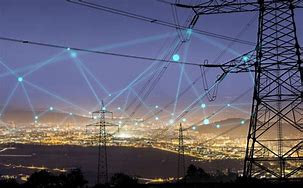Scotland is an area that frequently experiences severe weather conditions, considerably impacting its power supply, especially during storms.
For instance, 30,000 homes and dozens of schools were left without power after Storm Otto hit the country in February 2023. When storm season takes hold, power outages are sadly all too common – but thanks to groundbreaking artificial intelligence (AI) initiatives, this might be about to change.
Philipp Pratt, a leading innovation expert at Geonode, sheds light on how Scotland stands to benefit. “Residents need not dread the storm wraths anymore,” he said. “Our unique weather-relay AI system not only predicts weather patterns related to storms but also gauges their likely impact on the power supply.
“By doing so, power stations linked to our AI platform can take necessary advanced measures to avoid potential blackouts.” To help you understand this exciting story, our team has woven together all the concepts and possibilities of this project.
Predict4Resilience is a state-of-the-art £5 million project aimed at ending power disruptions caused by severe weather. This project utilises AI to predict potential power faults before they occur.
According to Geonode Innovation Expert Philipp Pratt, AI greatly accelerates early fault detection and speedy resolution of potential power faults. Leveraging a technology known as predictive analysis, AI analyses the huge amount of data collected from the power grids. It then uses this data to predict and identify where and when a fault might occur before it happens.
Key features of this technology include:
- Continuous real-time monitoring of power grids.
- Predictions of potential failure points are made possible by analysing enormous sets of data collected from power system facilities.
- The ability to instantly initiate actions to prevent or mitigate the fault.
It operates by continually analysing data on weather conditions, identifying patterns that have previously led to power cuts, and triggering early interventions when necessary. This type of proactive management has the potential to dramatically reduce service interruptions, producing more stable electricity provision, especially during the most challenging weather conditions.
The main benefit of this program is maintaining a consistent power supply during storm wraths. This AI-equipped project will have a control room staff with near real-time forecasts of likely faults per district 7 days ahead.
As a result, authorities can plan for storm events more effectively and fix power supply issues promptly. The result is fewer disruptions for customers.
With the help of SP Energy Networks, Predict4Resilience is currently undergoing extensive testing before its nationwide roll-out. Guy Jefferson, the Chief Operating Officer, has expressed his optimism about the project, declaring that AI interventions could drastically mitigate the disruption caused by storms.
For Scottish residents and businesses, this promises less downtime and more reliable power, especially in the face of increasingly unpredictable extreme weather disturbances. Pratt believes this new AI tech could be a game-changer in power management across Scotland, stating: “AI's role in predicting and preventing potential faults is transformative, and its integration into Scotland's power supply infrastructure might well ensure a consistent power supply, even during storm wraths”.
Scotland’s storm-led power cut issues have long been an unfortunate part of life. With the aid of AI, these interruptions could soon be greatly reduced. The initiative offers a pragmatic solution to a pressing issue and represents the potential for harnessing advanced technologies for social good.
Whether you're at home, at work, or providing essential services to the public, Scotland’s aim to adopt AI technology and ensure a steady power supply during storms can bring peace of mind to everyone!












